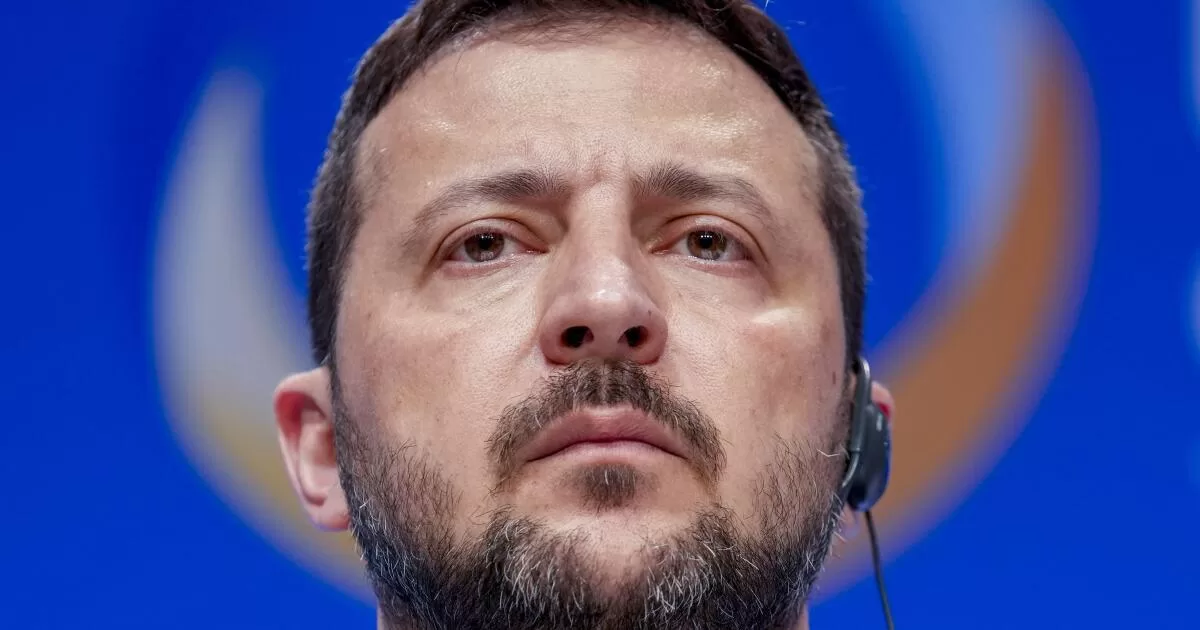In Europe this month, Ukrainian President Volodymyr Zelensky seems to be everywhere.
There’s a steely calculus behind that ubiquity: nearly 28 months into a brutal war with Russia, as Ukraine is struggling to hold its own against a far more powerful foe, maintaining European backing is considered nothing short of mission-critical.
The Ukrainian leader’s message has been unvarying: His country’s bloody confrontation with Russian President Vladimir Putin is Europe’s fight, too. If Russia were allowed to triumph, Zelensky warned, the continent would face unthinkable consequences.
“It is in our common interest that Putin personally lose this war,” he told German lawmakers in an emotional address Tuesday in the cool-gray-toned chambers of the Bundestag, Germany’s federal parliament.
As always, Zelensky leaned heavily into venue-specific symbolism, invoking Germany’s painful Cold War past.
Only a short distance from the snaking path of the Berlin Wall, which fell almost 35 years ago, he appealed to lawmakers not to accept Russia’s territorial grab in Ukraine, where Moscow lays claim to four provinces and the Crimean peninsula.
“You can understand why we are fighting so hard against Russia’s attempts to divide us, to divide Ukraine — why we are doing absolutely everything to prevent a wall between parts of our country,” the Ukrainian leader said. He received a sustained standing ovation at the speech’s end.
At first glance, European support for Ukraine seems solid. Together with the United States, EU member governments and the NATO alliance have thrown billions of dollars worth of weaponry and other aid into the battle. Since the start of this extended visit, the Ukrainian leader has been met with pledges of solidarity — and new infusions of cash.
But some cracks have emerged. In the run-up to European Parliament elections last week, far-right political parties denounced expenditures for the Ukraine war as fruitless, counterproductive and warmongering — and found a measure of electoral success with that refrain.
In Berlin, Zelensky’s Bundestag speech was boycotted by two parties — the far-right Alternative for Germany, or AfD, which became the country’s second-ranked political party in the European elections, and the populist Bündnis Sahra Wagenknecht, or BSW.
The AfD’s national leaders — noting Zelensky’s attendance this week at Berlin conference focused on reconstruction and other assistance for Ukraine — derided him as a “begging president.” The BSW, meanwhile, accused him of abetting “a highly dangerous spiral of escalation” that could lead to nuclear disaster.
For some of Ukraine’s most important European supporters, these are not the best of times. National leaders in Europe’s two most influential states — France’s President Emmanuel Macron and Germany’s Chancellor Olaf Scholz — suffered stinging setbacks in the European vote.
Macron called snap national parliamentary elections in response to a big defeat for his party at the hands of the far-right National Rally. Scholz declined to accelerate next year’s parliamentary election timetable after his party was more narrowly outpolled by AfD, and much more substantially by his main conservative opponents, but he faced needling from rivals who demanded a fresh start.
“On Ukraine, we could start to see indecision in both Paris and Berlin,” said Matthias Matthijs of Johns Hopkins University’s School of Advanced International Studies. “Macron is going to be preoccupied. Scholz is going to be preoccupied.”
For Ukraine, not all the news coming out of polling across the 27-member European Union was bad. The far-right party of autocratic-minded Prime Minister Viktor Orban of Hungary, who has consistently sought to undermine support for Ukraine, fared poorly.
But Hungary next month assumes the rotating presidency of the EU Council, giving Orban an opportunity to throw anti-Ukraine spanners into the bloc’s policymaking process.
Beginning Thursday in Italy, Zelensky is expected to be in attendance as a guest at the Group of 7 summit in Puglia, in southern Italy. During their meeting at the plush resort of Borgo Egnazia, the G-7 leaders were reportedly set to unveil loans to Ukraine that make use of profits from frozen Russian assets, a plan that has already drawn howls of protest from Moscow.
On the sidelines of the Italy meeting, President Biden and Zelensky were to sign a bilateral security agreement, but national security advisor Jake Sullivan told reporters traveling with the president that the pact would not directly commit any U.S. troops to Ukraine’s defense.
Unlike at the G-7, where participants will be dealing with a range of issues including immigration, China, and the Israel-Hamas war in Gaza, Ukraine will be center stage at a weekend Swiss-hosted peace summit, held at the initiative of Zelensky’s government.
Switzerland said representatives of nearly 90 countries and organizations would be in attendance — but not Russia‘s. Putin’s government was not invited, but said it wouldn’t have come anyway, because the conference’s main underpinning is a list of Ukrainian peace proposals it has spurned.
Despite Ukrainian hopes, though, little of real substance was expected to emerge from the Swiss gathering.
In all likelihood, the emotional center of gravity of Zelensky’s European sojourn came at its onset. The Ukrainian president joined leaders gathered in Normandy, France, last week to commemorate the 80th anniversary of the D-Day invasion, a key turning point in the Allied battle against Nazi Germany.
At Omaha Beach, Biden drew an explicit linkage between that long-ago fight for freedom and democracy and Ukraine’s struggle for survival today.
“The autocrats of the world are watching closely to see what happens in Ukraine,” Biden said.
On the ceremony’s sidelines came a moment that was captured by cameras and subsequently went viral online. Zelensky encountered an 99-year-old American World War II military veteran, identified by a relative as Melvin Hurwitz of Frederick, Md., who reached out to the Ukrainian leader from his wheelchair.
Grasping Zelensky’s hand, Hurwitz made as if to kiss it, calling him “the savior of the people.” Leaning in and bending down for a warm embrace, Zelensky demurred.
“No, no, no,” he responded. “You saved Europe.”
